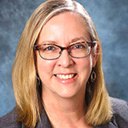CPA credential legislation is start of discussion
March 1, 2023 | Linda Wedul, CAE

The profession is at critical point. In change management, it is called an inflection point — a time of significant change in a situation, a turning point.
Declining high school graduation sizes, increasing demand for CPAs, increasing retirements and declining number of candidates sitting for the CPA exam are converging to severely restrict the number of CPAs who provide critical financial services and advice to communities, businesses and individuals.
Facts to consider:
- A survey of MNCPA members shows an increase in the number of new hires who hold accounting degrees with 120 credit hours. Fifty percent of respondents say it is unlikely or highly unlikely staff with 120 hours will sit for the CPA exam.
- A 2019 study titled, “Occupational licensing and accounting quality: Evidence from the 150-hour rule,” by John Barrios, a professor at University of Chicago Booth School of Business, found a 15% reduction in first-time CPA exam candidates after the 150-credit requirement was implemented. This decline aggregates over multiple years. The study also found there wasn’t an increase in work quality after the 150-hour rule was adopted.
- A working paper published in 2020 by Brian Meehan and E. Frank Stephenson from Utah State University found the 150-hour education requirement acts as a barrier to entry, and their analysis suggests that that the additional educational requirement does not enhance candidate quality.
- We see the impacts across Minnesota with a disproportionate effect on Greater Minnesota as businesses, governmental entities, nonprofits and individuals report they are unable to find CPAs. This is also happening in other states.
The profession Is under a great deal of pressure. A system under pressure seeks equilibrium. To increase staff, more firms are moving work to an overseas labor force. Not all workers in other countries are subject to the 150-credit requirement. When entities can’t find qualified auditors, will audit thresholds be raised, which increases the risk to communities? Will regulators allow other options for audit and attest requirements because the CPA profession is unable to meet the market needs?
Legislation introduced last week to make a reasonable modification to broaden licensure requirements is being positioned as destroying mobility and isolating Minnesota CPAs. It feels like the David versus Goliath story. To quote a message sent to MNCPA members by the AICPA: “Any change to Minnesota’s education requirement for licensure means Minnesota CPAs would no longer be able to practice in another U.S. state or jurisdiction without first having a reassessment of their license qualifications, and in most cases, if not all, apply for a license in that jurisdiction.”
Three items to consider about this statement:
- It is the individual state boards of accountancy that determine who can practice in their respective states. The AICPA and NASBA have significant influence, but they are not the regulators.
- Is it reasonable that CPAs who currently practice across state lines will have mobility revoked if Minnesota makes a licensing change for future licensees? Some individuals would consider that a significant overreach when a large number of those CPAs have 150 credit hours or were grandfathered in and have practiced across state lines for nearly 15 years.
- The AICPA and NASBA messaging is focused on mobility as it currently exists, when it should focus on the critical problem: More CPAs are needed and the lack of CPAs is a public protection problem.
The MNCPA introduced legislation because attempts over many years by various AICPA and NASBA constituents to have meaningful discussions about licensure were rebuffed. As the largest national association for CPAs, it is the role of the AICPA to bring stakeholders together. It took legislation to open up the conversation. Mobility is a hurdle to solve, but it is not the problem.
The CPA exam is the common requirement that is the same across all jurisdictions for all CPA candidates. Variations exist in the ethics, experience and educational requirements among states. There are examples and precedents that demonstrate mobility and variations in licensing requirements can and do coexist.
The profession has adapted through many technological and cultural changes. Its long tenure is evidence of this adaptability. For the profession to be adaptable, the requirements for licensure must also be adaptable. If there are no substantial equivalents to the additional 30-college credit hours because it would destroy mobility, the profession is missing a critical element of adaptability.
Introducing legislation is the beginning of a necessary robust and public conversation about CPA licensure. Proposed legislation rarely, if ever, passes as originally introduced. We expect more conversation, new ideas to emerge and the legislation to evolve. Legislation is a tool to challenge regulatory rules when the voices of stakeholders are ignored.
Now is the time for the AICPA and NASBA to focus on the core problem and demonstrate leadership and adaptability in lieu of threats and protecting the status quo. It is important for MNCPA and AICPA members to share their opinions about licensure requirements and about the CPA pipeline. Together, the profession will remain resilient, adaptable and continue to provide the financial stability our communities need to thrive.
Learn more about this initiative
The MNCPA introduced legislation (HF 1749 and SF 1660) in February 2023 to consider broadening the pathways to CPA licensure. The legislation was advocated for and supported by the MNCPA board after years of discussion with members concerning the ongoing CPA pipeline concerns.
Learn more about broadening the pathways to CPA licensure.
Topics: Accounting & Auditing, Staffing, Workplace Trends, Professional Certification, Succession, Education
Linda Wedul, CAE

Linda Wedul is president and CEO of the MNCPA. She’s usually spotted at MNCPA events, introducing herself to members with a warm smile and memorable laugh. Mixed among the Footnotes, accounting journals, leadership books and three monitors in her office, you’d be surprised to see a dog kennel. Her unpaid job is volunteering as a foster family for service dogs in training through Can-Do-Canines. She and her husband have two adult children and live in Farmington. Linda can be reached at 952-885-5516 or lwedul@mncpa.org.
Blog Posts by this author